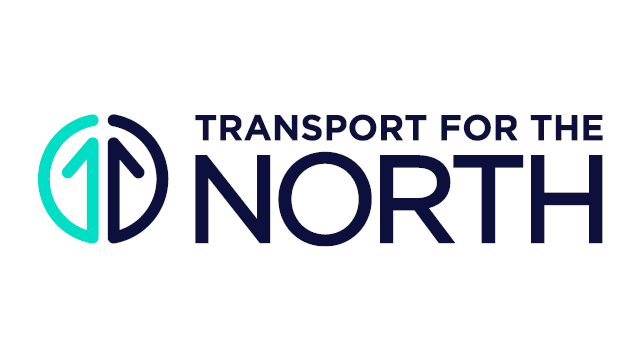
Earlier this year, Community Rail Network fed into the public consultation around Transport for the North’s (TfN) first Transport Decarbonisation Strategy.
TfN and partners believe that an acceleration towards zero-carbon transport must be at the heart of public policy making and investment decisions to achieve a near-zero emissions surface transport network in the North by 2045, ahead of the national target of net-zero by 2050.
The strategy builds upon the four objectives in TfN’s Strategic Transport Plan:
- Transforming economic performance;
- Increasing efficiency, reliability, integration, and resilience in the transport system;
- Improving inclusivity, health, and access to opportunities for all;
- Promoting and enhancing the built, historic, and natural environment.
To meet their 2045 target, TfN have produced an evidence-based and time-bound ‘decarbonisation trajectory’, including the following agreed targets:
- A 56% reduction in emissions from 2018 to 2030, achieved mostly through mode-shift and demand reduction;
- A 96% reduction in emissions from 2018 to 2040, reflecting longer-term decarbonisation measures, such as higher proportions of zero-emissions vehicles.
At 25 mega-tonnes of CO2, surface transport emissions in the North represent nearly one quarter of UK road emissions and 6% of total UK emissions. Over half of those emissions were generated by cars, with HGVs and vans accounting for a further 39%. Bus and rail represented just 5% of emissions.
Modal shift and demand management
To stimulate change towards more sustainable travel behaviours, TfN suggests progress needs to be made in five key policy areas:
1) Encouraging mode shift to walking, cycling, micro-mobility and public transport;
2) Disincentivising car use and avoiding unnecessary travel;
3) Encouraging the uptake of shared mobility;
4) Improving freight efficiency;
5) Ensuring transport and land-use planning processes encourage sustainable choices.
The strategy states: “To achieve significant mode shift, investment will be required in bus, rail and cycling infrastructure to improve journey times and quality and ensuring these networks are accessible and affordable to all. Funding must be made available for bus and rail, including investment to deliver improved journey times and reliability; targeted reduction and flexibility in fares; network expansions; and fleet improvements.
“The potential for rail to substitute for longer distance car trips, particularly those associated with leisure and domestic tourism is significant, and network expansion, including through schemes such as High Speed 2 and Northern Powerhouse Rail will play a part in stimulating modal shift for these types of journeys.
“Marketing and engagement must also be used to rebuild public confidence in the safety and value of public transport following the COVID-19 pandemic. Increasing uptake in active travel will require policies and investments that promote comfort, safety and convenience and prioritise provision for active travel ahead of motorised transport, particularly the private car.”
To work towards transport decarbonisation in the North, TfN has set out a range of its priority actions across various policy areas. Selected actions relevant to modal shift/demand management and rail are summarised below:
TfN’s Priority Decarbonisation Actions – Demand Management
- Developing Clean Mobility Visions for the North – Developing compelling visions highlighting the advantages of reduced car usage, active travel, micro-mobility, and public transport in creating ‘Liveable Places’ across the various geographies of the North. Underpinning this work with a robust evidence base and baskets of relevant policy measures – pre-2025;
- Supporting local partners in the development of Mobility Hubs – Provision of data and evidence to facilitate analysis into potential locations for mobility hubs, in both rural and urban areas, and to access funding sources – pre-2025;
- Consider the role of micro-mobility/shared mobility in the first and last mile journeys at train stations – Use TfN’s role within the Rail North Partnership to facilitate a consideration of how shared mobility, including cycle hire and e-scooter schemes, can be encouraged for first and last mile journeys at train stations – pre-2025;
- Develop schemes and infrastructure to improve the regional public transport network, e.g. Northern Powerhouse Rail – Develop and implement comprehensive plans for the regional public transport network, such as Northern Powerhouse Rail and wider improvements to the rail network – continuous (and beyond 2025);
- Supporting the development of scalable digital solutions for incentivising greener, shared, and active mobility in rural areas – Supporting partners, through provision of evidence and data, in understanding the key requirements of an effective rural MaaS (Mobility as a Service) system – continuous.
TfN’s Priority Decarbonisation Actions – Rail
- Identify appropriate routes for electrification – Support the Government and Network Rail, utilising the Northern Powerhouse Rail project, in identifying appropriate routes for electrification and associated implementation – pre-2025;
- Supporting TfN’s partners to attract testing and pilots of new low emission train technologies – Work with partners, Network Rail and Train Operating Companies (TOCs) to bid for the testing and trialling of new low emission train technologies in the region – continuous;
- Work with Train Operating Companies (TOCs) and Freight Operating Companies (FOCs) to exploit operational efficiency opportunities – Revise service patterns based around the progression of electrification to minimise the use of diesel-only trains before they are phased out – continuous.
